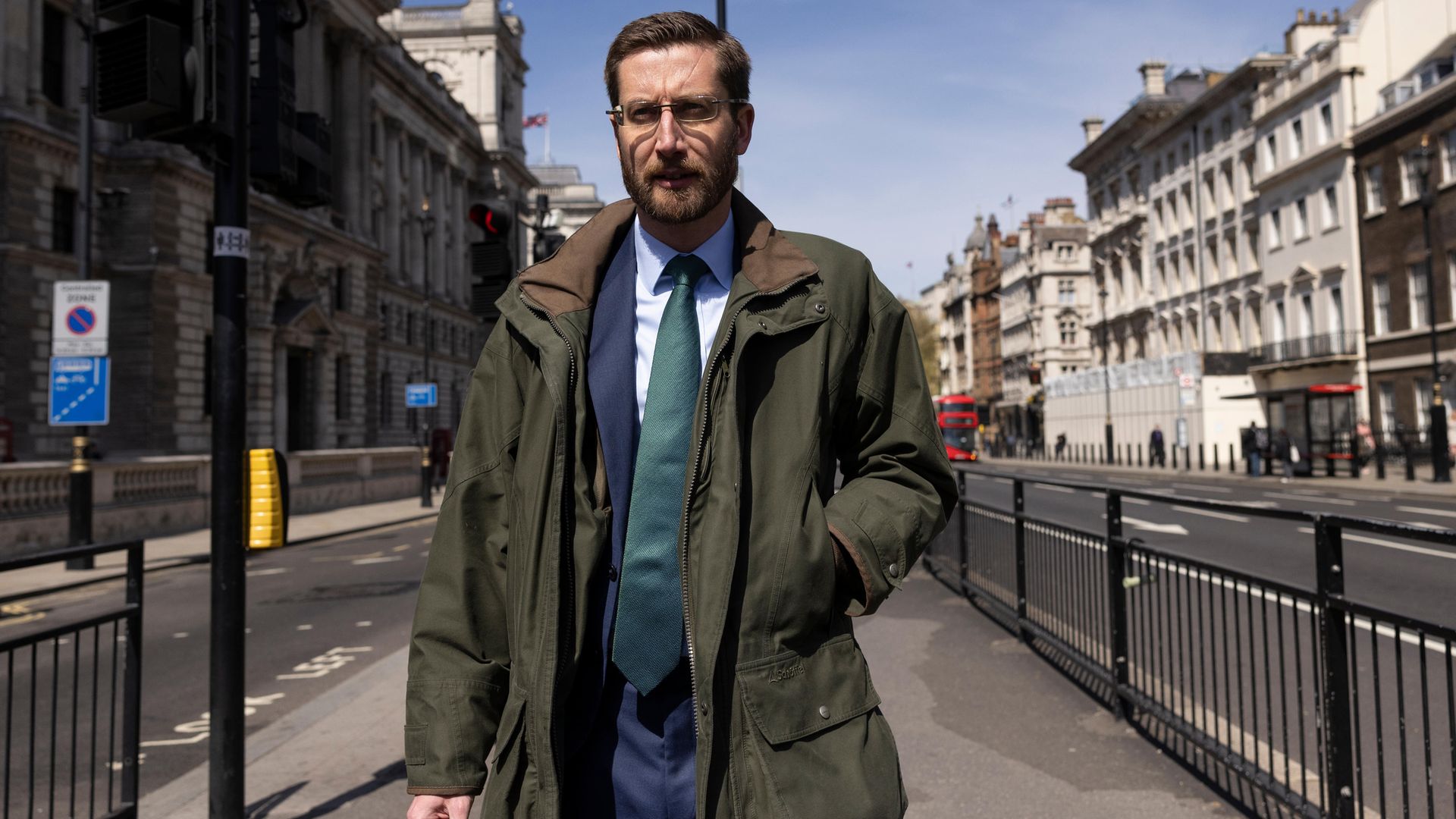
The Civil Service has been weakened by Brexit and the growth of court politics. But a rearguard action is underway.
Plucked from relative obscurity at the age of 41 to become cabinet secretary, Simon Case could hardly have imagined his present role as head of the Downing Street shovel brigade, clearing up mess largely of Boris Johnson’s making.
The bearded Case cut an uncomfortable figure last month in front of the House of Commons Public Administration and Constitutional Affairs committee. His deadpan responses to questions about the refurbishment of the prime minister’s flat and his own leak inquiry seeking to uncover the ‘chatty rat’ divulging Johnson’s personal communications left MPs unimpressed.
Firefighting is invariably part of the job of the cabinet secretary, who serves as top adviser to the prime minister and cabinet as well as head of the 430,000-strong Civil Service. But Case, a securocrat who worked at GCHQ and as an adviser to Prince William, confronts a challenge which goes to the heart of the Johnson government.
“The days of the Yes Minister satire are long gone, when permanent officials balanced power with political short-termism,” wrote Simon Jenkins in the Guardian. “That short-termism is now dominant, led by the ambitions of politicians fed by advisers inexperienced in the technicalities, and ethics, of public life.”
When Case was appointed last September, his immediate task was to head the government’s response to the pandemic, prevent a car crash in the Brexit trade negotiations with the EU and, more broadly, rally the Civil Service behind Johnson’s vision of a new, levelled-up Global Britain.
These priorities remain in place, but they risk being overwhelmed by the short-termism which is the hallmark of the government. The evidence is hiding in plain sight: the proliferation of fresh-faced special advisers addicted to social media; the musical chairs and theatrical exits in Downing Street; and Johnson’s own indifference to rules and conventions.
Further complicating matters is the role of Carrie Symonds, “the First Girlfriend” and mother of Johnson’s child, who appears to have an inordinate amount of influence over appointments and policy.
That said, there is one connecting thread in the current turmoil which Case and fellow civil servants are struggling to manage: the Brexit revolution.
Brexit ruptured 45 years of continuity in policy-making with regard to the EU, the UK’s most important economic and trading partner. It also became the ultimate loyalty test for civil servants, high and low – a poisonous legacy which continues today.
During the referendum campaign, for example, George Osborne mobilised HM Treasury behind “Project Fear” which produced a barrage of dire warnings about the economic consequences of a Leave vote, some of which proved to be exaggerated (though nowhere near as much as Leave campaigners’ claims about immigration and £350m a week savings to be spent on the NHS).
After the referendum, the deal or no-deal negotiations with Brussels proved a gigantic distraction for the best minds in Whitehall – a stalemate finally resolved by Johnson’s election victory in 2019, masterminded by Dominic Cummings, chief Leave strategist.
Cummings was determined to make the Brexit revolution a reality and promised a “hard rain” in Whitehall, which many interpreted as a purge of personnel. He demanded new powers over the appointment and reporting lines of all special advisers, to the alarm of then cabinet secretary Mark Sedwill, a securocrat appointed by Theresa May.
Sedwill confidently predicted that Cummings would be out within a year, arguing that Johnson was a ‘One Nation’ Conservative who would eventually tire of his revolutionary-in-residence. In the event, Sedwill miscalculated: he was eased out of his job in favour of Case, and Cummings lasted two more months before his spectacular ejection last November.
The latest furore over who funded the extravagant redecoration of Johnson’s boudoir in Downing Street, coupled with questions about business access in Whitehall and the security of Johnson’s own phone (another Case preoccupation), obscures a potentially more important development.
Slowly but perceptibly, the Establishment, via an alliance of mandarins and public servants, is staging a rearguard action. While it is too early to call it a full-scale counter-offensive, it certainly qualifies as passive resistance to further random acts of violence by the Tory Brexiteers and an attempt to set some boundaries on Johnson’s behaviour and ministerial conduct.
The first sign was the protective shield thrown around Sir Tom Scholar, permanent secretary of the treasury, a career civil servant who served as an adviser to Labour and Conservative chancellors and prime ministers. After the Cummings-inspired removal of six permanent secretaries, including the heads of the Foreign Office, Home Office and cabinet secretary, Case (and others) signalled to Johnson it was time to call a halt.
More recently, Case helped to persuade Lord Christopher Geidt, a former private secretary to the Queen, to take on the unenviable task of becoming Downing Street’s new independent adviser on ministerial standards. Geidt’s appointment follows the resignation of Sir Alex Allan who stepped down after Johnson failed to act on his finding that Priti Patel had bullied her top civil servant at the Home Office.
Geidt is no softie, having served in army intelligence and diplomatic liaison with the Bosnian Serbs back in the 1990s. The problem is that he has no powers to instigate his own investigations. For his part, the prime minister is under no obligation to accept any of Geidt’s recommendations.
Lord Jonathan Evans, a former head of MI5, now head of the committee of standards in public life, who also advises the prime minister, has expressed disquiet about the terms of Geidt’s role, albeit in coded terms. “We will want to consider how far the new arrangements provide the degree of independence and transparency that the committee believes is necessary.”
The obvious answer is to put the ministerial code on a statutory footing, with the ethics adviser appointed by parliament and able to initiate their own investigations. Further, the prime minister’s discretion to approve or reject the findings would be removed. “Think, a National Audit Office for behaviour,” says Jill Rutter, a former senior treasury official now working at the Institute for Government.
Such an arrangement would fall far short of creating Watergate-style special prosecutors with powers to investigate ethical misconduct by the executive branch. It would nevertheless be a big shift from the principles and norms approach which the historian Peter Hennessy calls “the Good Chap Theory” of government.
“The British constitution is a state of mind,” says Hennessy, “it requires a sense of restraint all round to make it work.”
Restraint is not a word normally associated with Johnson. But he has been put on notice. The cabinet secretary, whose duty lies to the permanent institutions of government as much as his current political master, will have to decide how far to push his case.
Other (fearsome) perm secs.
Sir Burke Trend “The mandarin’s mandarin” from the Swinging Sixties; he led an investigation into allegations the Secret Service had been penetrated, which were later publicised in Spycatcher, the controversial memoirs of former MI5 officer Peter Wright.
Sir Robert Armstrong Margaret Thatcher’s cabinet secretary who is widely credited with the phrase “economical with the truth”, after he used it during the trial in which the government sought to suppress the publication of Spycatcher.
Sir Gus O’Donnell Fixer supreme who served under Tony Blair, Gordon Brown and David Cameron, for whom he brokered the coalition; often referred to by his initials, GOD.
Sir Jeremy Heywood Ran the government under Cameron and Theresa May, having worked for other PMs before them. Blair said he had “worked with more prime ministers and at a more senior level than any civil servant in living memory”.










